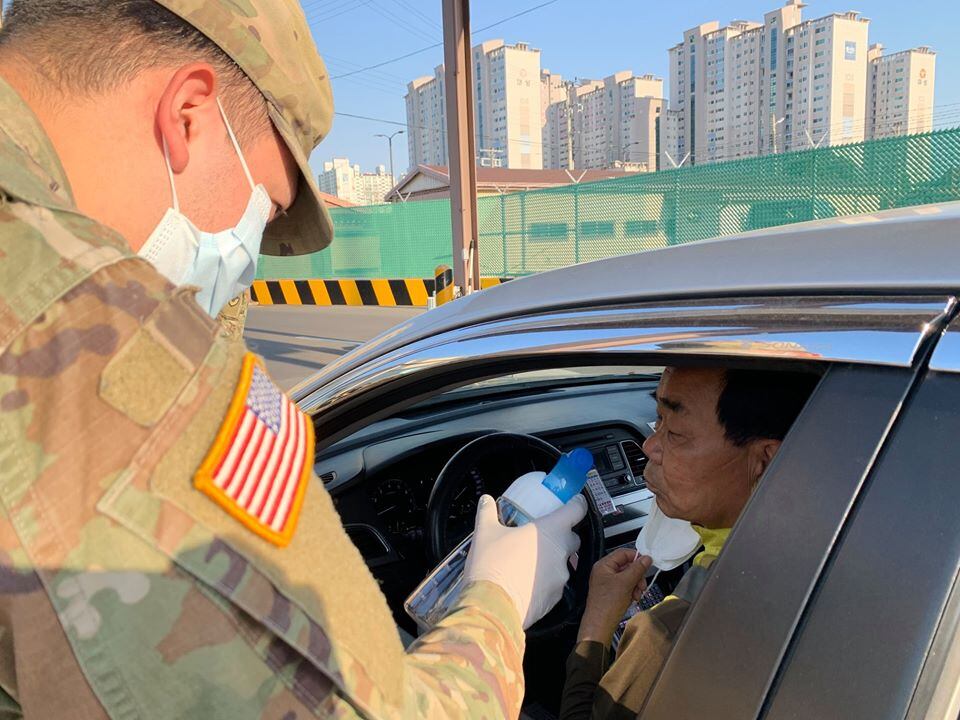Don’t be surprised if you have to pass a smell test before heading on base next time.
U.S. Army Garrison Daegu in South Korea is conducting random smell checks at entrance gates to prevent the spread of COVID-19.
“We are now performing random smell tests at the entrance gates of Camps Walker, Carroll and Henry to help better detect personnel who may be infected by COVID-19,” USAG Daegu said in a Facebook post Friday.
“Those personnel who cannot detect the smell will be further screened” the post said.
USAG Daegu is made up of Camp Henry, Camp Walker, Camp George and Camp Carroll.
Officials at USAG Daegu are suggesting vinegar, with its pungent, sour odor is a good way to test smell.
Recent studies suggest that a loss of smell may be a symptom of COVID-19. As a result, USAG also cited a guidance document from ENT UK, the British Association of Otorhinolaryngology, that found COVID-19 patients in countries including South Korea often had a more difficult time smelling.
For example, the guidance said that for 30 percent of patients with mild cases of COVID-19, their primary symptom was a loss of smell, known as anosmia. The guidance also reported that more than 66 percent of COVID-19 patients in Germany suffered from anosmia.
“We really want to raise awareness that this is a sign of infection and that anyone who develops loss of sense of smell should self-isolate,” Claire Hopkins, president of the British Rhinological Society, told the New York Times. “It could contribute to slowing transmission and save lives.”
U.S. Forces Korea has had more than a dozen personnel test positive for COVID-19. The most recent cases are two USFK contractors: one who worked at Osan Air Base and another at Camp Humphreys. Both are U.S. citizens and are isolated at their off-base residences.
In total, South Korea has more than 10,000 confirmed cases of COVID, according to Johns Hopkins University.
Meanwhile, COVID-19 cases among military personnel are also rising. The Pentagon said Friday 978 service members have tested positive for COVID-19, along with 306 civilians, 256 dependents and 108 contractors.





